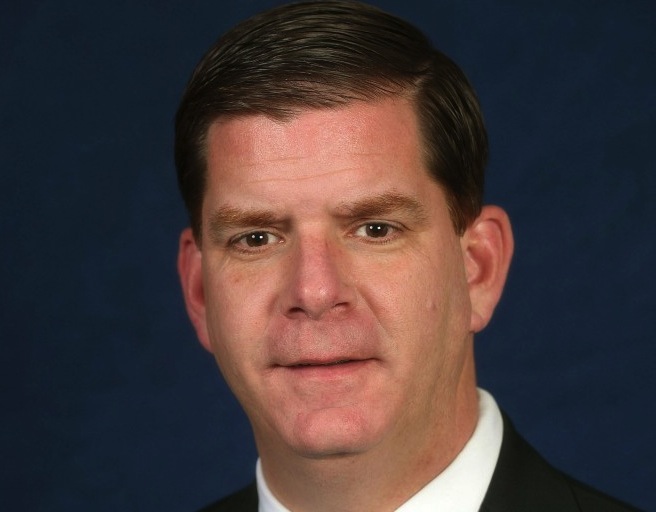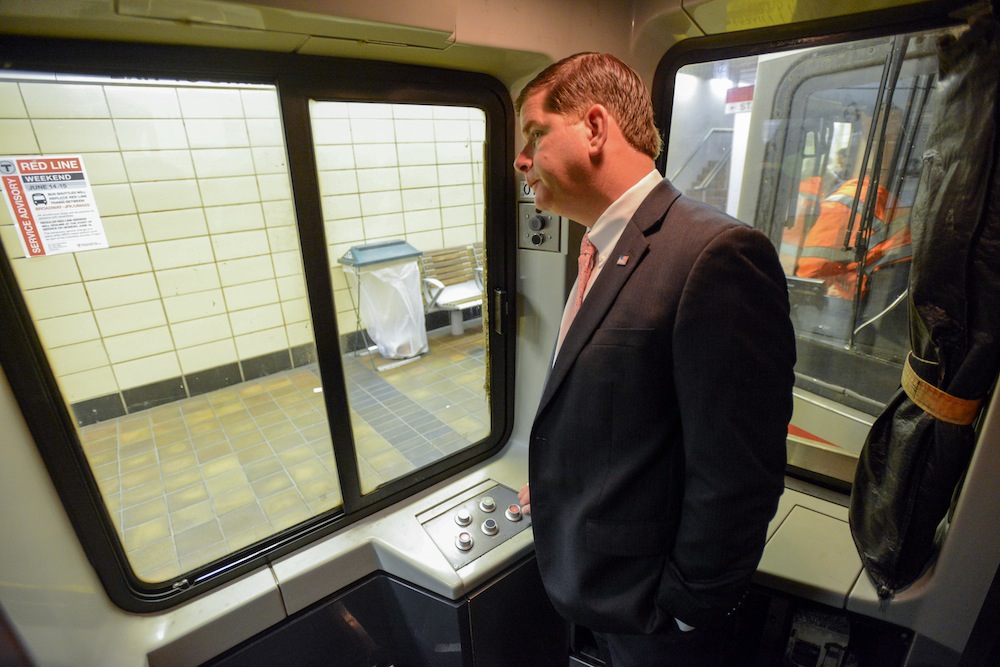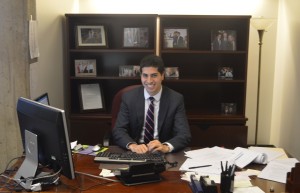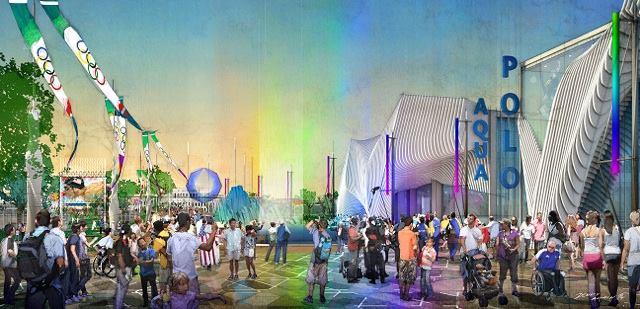
It’s not fair to say the innovation class doubted Mayor Martin Walsh. Rather, it’s more fitting to say in the buildup to replace Mayor Tom Menino many placed more faith in John Connolly, the mayoral contender from West Roxbury who many expected to take office in City Hall. It was Connolly, they (and we) said would cater to startups and entrepreneurs, catalyze positive neighborhood development, invigorate arts and culture, and overhaul public education.
“Boston needs a mayor who has a vision for Boston that looks forward into the 21st century.”
For BostInno, it was Connolly who’d be able to reconstruct the Boston Redevelopment Authority; it was Connolly who’d spur entrepreneurship and new technologies in various Boston communities; it was Connolly who’d challenge public school reform.
Walsh has started developing in all of those sectors. With the help of a youthful administration the mayor has shown himself to be open-minded and capable in the realms of public art, neighborhood-based innovation and small business permitting.
Related: 5 Things We’d Like to Hear in Mayor Walsh’s First State of the City Address
We’ll never be able to say for certain what Connolly would have done. But after one year, Walsh is making an impact on several of the issues most important to Boston’s innovation class. On others, a slow start has made progress uncertain. Can Walsh keep his hand on the throttle? Can he make himself and the city better than when he took up office a year ago?
Where Walsh has led
Public art
Walsh’s administration has striven to re-establish Boston’s arts and culture scene – and he’s spreading the love around. Boston Proper is not the only recipient seeing new installments, though City Hall remains ground zero.
The Stairs of Fabulousness bring some much-needed color and life to the City Hall mezzanine where above there will also be Lobby Sky, an azure ceiling mural featuring fluffy white clouds instead of a drab gray ceiling.
Doherty-Gibson Park in Fields Corner will soon be the venue for the steel structure Freedom Home, celebrating Dorchester’s substantial diversity.
In aforementioned Roxbury Innovation Center, the Block Quotes project will be on full display to showcase Boston’s deep literary roots. A phone number listed beneath the quote, on the other end of which is a friendly recording of the author, welcomes the caller to Boston which can otherwise feel cold and cliquey to some.
Neighborhood innovations
The Bruce C. Bolling Municipal Building will house the Roxbury Innovation Center – a space designed to host networking events and foster early-stage startups. The roughly 3,000-square-foot incubator is designed to help revitalize Dudley Square by boosting a local innovation economy not unlike the South Boston waterfront.
Wicked Free Wi-Fi was a free wireless internet program piloted first in Grove Hall, a neighborhood straddling the line of Roxbury and Dorchester. Making sure some of the city’s more under-resourced neighborhoods are plugged into the World Wide Web lends credibility to Mayor Walsh’s goal of making Boston the tech capital of the world. Wicked Free Wi-Fi is now available in Mattapan, Roslindale, South Boston, East Boston, Allston-Brighton and Charlestown as well.

Assisting SMBs
To strengthen small and medium-sized businesses, Mayor Walsh revamped the permitting and licensing system by partnering with Accela to streamline the entire process (for which he also threw a hackathon to solicit permitting ideas from the community).
He also encouraged his staffers to meet with startup founders and entrepreneurs, giving support to an emerging startup sector. Parking apps and transportation startups like SPOT, SpotLight, SpotHero, Veer, Bridj, TicketZen and Parkmobile have all benefitted, as have commuters, from garnering advice from the administration on best practices, implementation and compliance.
City appointments
Chief of Staff Dan Koh served as a mayoral advisor in the Menino administration and as Arianna Huffington’s chief of staff. He now oversees the Mayor’s Office of New Urban Mechanics for which priorities include activating the City Hall mezzanine, assisting parking and transportation startups, and decongesting Innovation District traffic.

In terms of technology, Walsh appointed Jascha Franklin-Hodge as Boston’s CIO and Lauren Lockwood as its chief digital officer. Franklin-Hodge helped make social media a legitimate campaign tool while working for Howard Dean. Lockwood’s time as a project manager at HourlyNerd honed her ability to discern data-driven projects that boost civic engagement.
The City of Boston Website, for example, is really “The front page of the City,” according to Lockwood, one of several other “assets that don’t get used very much, like the cable news channel.”
Austin Blackmon, who was recently tapped as the city’s chief of environment and energy, will take the experience he gained working on environmental policy compliance for Booze Allen Hamilton (and interning for Senator Barack Obama) to keep Boston at the forefront of reducing greenhouse gas emissions.
“People who want to do something small – even working with their thermostat, turning it up or down just one degree – can have a big impact,” Blackmon said.
Where Walsh must still prove himself
Affordable housing
Data from Zillow says the median monthly rent in Boston is a whopping $2,497. In order for Mayor Walsh to retain and foster recent graduates and bootstrapped entrepreneurs, building affordable housing is paramount.
He’s laid a foundation for Boston in a way the innovation class thought John Connolly would do better.
Two transit-oriented planning areas along the Red and Orange Lines are expected to allow the construction of 20,000 workforce housing units. By increasing density and re-examining unit sizes with these developments, City Hall hopes to curtail the steady increase in housing costs.
Boston Redevelopment Authority reform
Walsh is still stringing together his highly hyped promise to shake up the Boston Redevelopment Authority, criticized for political ties and favoritism toward certain developers.
Walsh began his shake-up in the agency’s economic development section, replacing its director and giving oversight to his economic chief, confidant and former opponent in the mayoral race, John Barros. Most recently, he tapped Brian Golden as the BRA’s permanent director.
The speed in which he made these personnel changes, though, was hardly expeditious. Considering the emphasis Mayor Walsh placed on BRA reform, it took him 11 months to decide that Golden was his man as director.
Building projects continue across the city. The BRA approved $3.7 billion in new developments on top of ones already under construction. In some districts, meanwhile, planing is overdue. Take the Marine Industrial Park: Eight lots of 23 acres zoned for either commercial, industrial, parking or maritime development and sitting on the waterfront under-utilized. Utile, Inc. was named as the firm to devise a master plan for the area, which, according to the BRA audit commissioned by City Hall, should be driving revenue.
With the Innovation District growing at a breakneck speed, it’s imperative that Mayor Walsh up his pace and put the pedal to the floor when it comes to BRA reform.
Education reform
Mayor Walsh must dedicate as much time and as many resources to keeping education on the cutting edge.
He’s taken steps to do this, most recently by negotiating with the teacher’s union to add 40 extra minutes to public school days. But in order for this to be an effective measure, it has to be implemented correctly.
Anneta Argyres, who was cochairwoman of the Curley School Parent Council, told The Boston Globe, “What we need is to bring back the richness and the diversity of education, not just pile on 40 minutes more of the same.”
The Bruce Bolling Building will also be the home of the Boston Public Schools headquarters, ground zero for what the mayor is calling Boston’s Digital District. A New Urban Mechanics project, the Digital District is a sweeping endeavor to infuse all grade levels more technologically advanced. From providing students with next-generation devices like tablets to affording parents platforms for tracking their students to and from school, the success of the Digital District is contingent on students’ performance in an increasingly tech-centric world.
Like his search for a BRA director, Mayor Walsh has taken his time vetting candidates to become the next BPS Superintendent. He’s formed neighborhood committees and will be hosting one more community search forum, but he had expressed his desire to have someone in place by September of 2014.
Boston 2024 Olympic bid
The mayor has publicly stated that he thinks hosting the 2024 Summer Olympic games would be a fantastic opportunity for Boston, so long as it “doesn’t mortgage the future of the city away.”

More than any other U.S. candidate city, however, Boston has voiced opposition to the bid and will continue to do so. No Boston Olympics has drummed up enough dissent to make some citizens wary of playing host, also shedding light on the fact that the bidding process hasn’t been transparent up to this point.
Mayor Walsh scheduled nine community meetings to entertain neighborhoods’ thoughts on the matter, but has said he won’t put it to a vote. When the city of Denver vied for an Olympic nod in 1976, residents subsequently blocked a state ballot measure to provide public funding for the Games knowing full well it’d force the International Olympic Committee to relocate them. That was a long time ago. But how Walsh addresses the public opinion factor this time around will be critical to the success or failure of a possible 2024 Games.
Bottom line
The mayor still has some learning to do, but it seems he’s on the right track. Once a dark horse mayoral candidate, Mayor Walsh quickly gained favor with many Bostonians by building on various successes of his predecessor while at the same time carving his own path.
Walsh is a rookie mayor unaccustomed to the pace and style of running a city. The decisions made at the municipal level require a quicker turnaround and more definitive action than how he played it during his years as a legislator on Beacon Hill. Large scale entities like the Boston Redevelopment Authority and Boston Public Schools, as well as endeavors like the 2024 Olympic bid, would benefit from the same kind of agility and dexterity seen with public art and civic innovations.
With a year of experience under his belt and zealous new hires, Mayor Walsh has plenty of resources at his disposal to continue initiating advantageous neighborhood projects and to deliver on campaign promises for critical city government improvements. But he’s still proving himself as a mayor.
Was Mayor Walsh the right choice over John Connolly in the 2013 mayoral election? Even now, with a full year to consider, the jury may still be out on him. But he’s laid a foundation for Boston in a way the innovation class thought John Connolly would do better. As he continues to build upon it, he’ll need to keep in mind the haste with which to make decisions, the contrasting opinions of Boston residents and how to keep Boston both livable and lovable in the short term and the long term.

